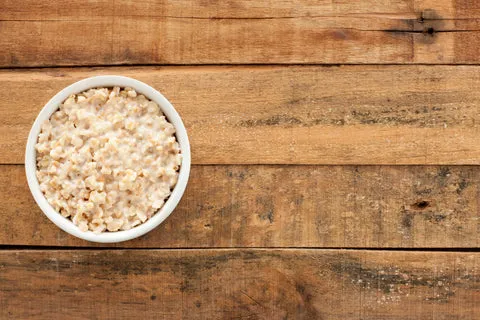When our beloved canine companions fall ill, a common concern for many pet parents is knowing what to offer them, especially when their usual appetite wanes due to an upset stomach or general unwellness. Just like humans, dogs can be particular about food when they’re feeling under the weather, making it challenging to ensure they receive the nutrition needed for recovery. Providing easily digestible, wholesome food is paramount to supporting their energy levels and helping them regain strength. This guide will explore safe and effective dietary options for your sick dog, from bland home-cooked meals to specialized foods for chronic sensitivities. For a comprehensive understanding of what to avoid, you might also find our guide on what dog food not to feed dogs incredibly helpful.
Understanding Your Sick Dog’s Dietary Needs
A sick dog may display various symptoms, including vomiting, diarrhea, lethargy, or a complete loss of appetite. These signs indicate that their digestive system is compromised, or their body is struggling to cope. During such times, the goal is to provide food that is gentle on their stomach, easy to digest, and packed with essential nutrients to support their immune system and healing process without causing further irritation. It’s always a good practice to have some readily available, healthy options, but if your dog’s condition persists or worsens, consulting your veterinarian is crucial for professional diagnosis and treatment.
10 Best Foods for a Dog with an Upset Stomach
If your dog is experiencing an upset stomach, a plain, bland diet is often the most effective approach to help them recover. Having these nutritious options on hand can make a significant difference in nursing your furry friend back to health. Remember to introduce new foods slowly and monitor your dog’s reaction.
1. Boiled White Meat (Chicken or Turkey)
Plain white meat, such as chicken or turkey breast, is an excellent choice for a sick dog. It’s incredibly easy to digest, low in fat, and provides a crucial source of lean protein, which can help soothe your dog’s stomach and aid in their recovery. Always ensure you remove any skin or bones before feeding, as these can pose a choking hazard and are harder for their sensitive digestive system to process.
To prepare, rinse the meat thoroughly under cold water, then remove any excess fat, skin, or bones. Place the meat in a pot, cover it with water, and bring it to a boil. Reduce the heat and let it simmer for 15-20 minutes until thoroughly cooked. Drain the water, cut the meat into small, bite-sized pieces for easier digestion, and allow it to cool completely before serving. This can be given alone or combined with plain white rice or cooked vegetables.
 Cooked chicken breast pieces in a bowl for a dog
Cooked chicken breast pieces in a bowl for a dog
2. Plain White Rice
White rice is a staple in many bland diets for dogs and for good reason. Its plainness makes it incredibly easy to digest, especially when your dog’s stomach is feeling sensitive. While brown rice offers more nutrients, the simplicity of white rice is preferable for a sick dog as it causes less digestive strain. It’s a perfect complement to boiled white meat, creating a well-rounded and gentle meal.
Furthermore, white rice can be particularly helpful if your dog is suffering from diarrhea, as its binding properties can help solidify stools and normalize their digestive system. To cook, rinse the rice under cold water, then add it to a large pan with twice the amount of water (e.g., 1 cup rice to 2 cups water) and a generous pinch of salt. Bring to a boil, then reduce to a simmer, cover, and cook on low heat for about 18 minutes, or until all the water is absorbed. Let it rest and cool, then fluff with a fork before serving.
 A Golden Retriever looking at a bowl of white rice
A Golden Retriever looking at a bowl of white rice
3. Cooked Sweet Potatoes
Plain, cooked sweet potatoes are a fantastic addition to a sick dog’s diet. They are a rich source of vitamins (A, C, B6), fiber, and essential minerals like calcium, iron, and magnesium. These nutrients are vital for boosting your dog’s overall health and supporting their recovery. Their gentle nature on the stomach and intestines makes them an excellent choice for soothing digestive upset.
Never feed your dog raw sweet potatoes, as they are much harder to digest and could exacerbate their stomach issues. Instead, peel the skins, chop the potatoes into chunks, and boil them in water until they are very soft. Once cooked, drain the water, mash the sweet potatoes, and allow them to cool completely before offering them to your dog. This soft, nutrient-dense food can provide comfort and vital sustenance.
 Sliced cooked sweet potatoes on a wooden surface
Sliced cooked sweet potatoes on a wooden surface
4. Pumpkin Puree
Similar to sweet potatoes, pumpkin is highly effective in alleviating an upset stomach and improving a sick dog’s well-being. It is packed with vitamins, including vitamin A, and is an excellent source of fiber, which helps regulate digestion. The vitamins contribute to boosting your dog’s immune system, which is crucial during recovery.
You can give your dog up to four tablespoons of plain, canned pumpkin puree (without any added sugars, spices, or other ingredients like pumpkin pie seasoning) with their regular bland meal or mixed with chicken and rice. Avoid any seasoned pumpkin products, as these can make your dog’s stomach feel worse. Freshly cooked and mashed pumpkin works just as well, ensuring it’s unseasoned.
 A husky dog with a pumpkin slice shaped like a smile
A husky dog with a pumpkin slice shaped like a smile
5. Homemade Bone Broth
Homemade bone broth is a highly nutritious and easily digestible option for sick dogs. It provides essential nutrients, including vital minerals like sodium and potassium, which can help replenish electrolytes lost through vomiting or diarrhea. Furthermore, bone broth is excellent for encouraging hydration, especially if your dog is reluctant to drink water.
When preparing bone broth, it’s crucial to avoid using garlic or excessive salt, as these ingredients can further irritate your dog’s stomach or be toxic. Bone broth is also low in carbohydrates, making it a gentle and easy-to-digest choice for dogs with sensitive stomachs. To prepare, add beef or pork marrow bones and chicken or turkey bones to a large cooking pot. Cover them with a few inches of water and cook on low heat for 20-24 hours. After cooking, strain the liquid to remove all bones and serve the cooled broth to your dog.
 A small puppy licking a bowl of bone broth
A small puppy licking a bowl of bone broth
6. Stage 2 Meat-Based Baby Food
For puppies or even adult dogs struggling with a sensitive stomach, stage 2 meat-based baby foods (such as plain chicken, lamb, or turkey) can be an effective and palatable feeding choice. These foods are specifically designed to be easy to chew and digest, making them gentle on an upset digestive system and potentially helpful in managing diarrhea.
It is absolutely vital to carefully check the ingredients list to ensure there are no additives that could be toxic to dogs, such as garlic or onion powder. These ingredients are commonly found in human foods but are harmful to canines. If you have any doubts about the ingredients in your chosen baby food, always consult your veterinarian for advice before feeding it to your dog.
7. Poached Fish (Cod, Haddock)
Fish can be a wonderful source of healthy fats, particularly omega-3 fatty acids, and essential vitamins that can significantly benefit your dog’s immune system and overall health during illness. Its distinct aroma can also be a powerful appetite stimulant, encouraging a dog that has lost interest in food to eat again.
The best way to prepare fish for your dog is by poaching it. Similar to boiling chicken, add the fish fillets to a pan of water, bring it to a boil, then reduce the heat and simmer for 10-15 minutes until it’s thoroughly cooked and flaky. After cooking, meticulously remove all bones and cut the fish into small, easily digestible pieces before serving it cooled to your dog.
 A Corgi dog happily eating food from its bowl
A Corgi dog happily eating food from its bowl
8. Plain Cooked Oatmeal
Plain, cooked oatmeal, made from rolled oats, can be a soothing food for a dog with an upset stomach. It is rich in soluble fiber, which can help alleviate constipation and regulate bowel movements. Additionally, oatmeal contains antioxidants that are beneficial for reducing inflammation in the stomach lining, contributing to overall gut health during recovery.
While oatmeal is beneficial, moderation is key. Too much fiber can sometimes have the opposite effect and worsen a sensitive stomach. Offer small portions to start, and observe how your dog reacts. Ensure the oatmeal is cooked with water, not milk, and served plain without any added sugars, flavors, or sweeteners that could upset their digestive system further.
 A plain bowl of cooked oatmeal on a wooden table
A plain bowl of cooked oatmeal on a wooden table
9. Plain Yogurt
Plain, unsweetened yogurt, especially varieties containing live and active cultures, is an excellent food choice for a dog with an upset stomach. It’s packed with probiotics, beneficial bacteria that support healthy digestion and promote overall gut health. If your dog is experiencing constipation, the probiotics in yogurt can help regulate their digestive system and encourage more consistent bowel movements.
It is crucial to choose plain, natural yogurt without any added sugars, artificial sweeteners (especially xylitol, which is highly toxic to dogs), or fruit flavorings. Plain yogurt is readily available at most grocery stores, making it a convenient option if your dog suddenly falls ill. It can even be frozen into small portions and offered as a cool, soothing treat on a warm day, which can be particularly appealing to a dog with a reduced appetite.
10. Cooked Eggs
Provided your dog is not actively vomiting, cooked eggs can be an ideal food choice for a sick dog. Eggs are gentle on the stomach and provide an excellent source of high-quality protein, which is essential for healing and maintaining muscle mass. Furthermore, eggs can offer a much-needed energy boost if your dog is feeling a bit lethargic or weak after an illness.
The best ways to prepare eggs for your dog to ensure they are gentle on its stomach are scrambled without any butter or oil, or simply boiled. Avoid adding any seasonings, salt, or spices. However, if your dog is still vomiting, it’s best to avoid eggs completely, as the fat content, even minimal, could potentially worsen symptoms.
Special Dietary Considerations for Dogs with Allergies
If your dog frequently experiences an upset stomach or is often unwell, it’s highly recommended to consult your veterinarian. They can help determine if your dog is suffering from food-related allergies, sensitivities, or breed-specific dietary issues. In such cases, switching from regular kibble to specialized food options can make a significant positive impact on their long-term health and well-being.
1. Cold Pressed Dog Food
Cold-pressed dog food offers a beneficial alternative to traditional kibble, especially for dogs prone to food sensitivities or allergies. This type of dry food undergoes minimal processing at much lower temperatures compared to conventional kibble. This gentle manufacturing process helps to retain a higher nutritional value, preserving more of the natural goodness of the ingredients.
Due to its unique production method, cold-pressed dog food breaks down more easily in the stomach. This makes it ideal for sensitive digestive systems, aiding in digestion and reducing the likelihood of upset. Formulated with improved all-round health in mind, it digests at a similar rate to raw food, making it a suitable option to incorporate alongside a raw diet. Many varieties are available, including grain-free options, catering to dogs with grain-related allergies and providing them with nutrient-dense food that is gentle on their stomachs.
2. Insect Protein Cold Pressed Dog Food
For dogs with severe sensitivities or allergies to common meat proteins like chicken or beef, insect protein cold-pressed dog food can be a game-changer. This complete and nutritionally balanced food is crafted using the same gentle cold-pressing method, ensuring that nutritional value is retained and digestion is aided.
Insects like black soldier fly larvae offer a highly sustainable and hypoallergenic protein source. They often contain more protein than traditional meats and are naturally low in purines, making them an excellent choice for dogs with sensitivities or specific meat-related allergens. This innovative food breaks down similarly to other cold-pressed and raw options, allowing it to be fed alone or seamlessly integrated into a raw feeding regimen.
3. Raw Frozen Dog Food
For dogs that are particularly fussy or react poorly to existing kibble, a switch to raw frozen dog food can be a transformative dietary change. Raw food diets typically consist of natural, minimally processed ingredients and are often grain-free, which significantly aids digestion. Many owners report improvements in their dog’s coat, skin condition, and overall vitality after transitioning to a raw diet.
Raw frozen dog food commonly comes in various formulations, such as an 80/10/10 mix (80% meat, 10% offal, 10% bone) or a 70/10/10/10 mix (which includes 10% added vitamins and minerals). These options provide the flexibility to mix with your own chosen vegetables and supplements, allowing you to tailor your dog’s diet precisely to their specific allergies and nutritional needs, ensuring they receive a diet perfectly suited for their unique physiology.
Final Thoughts on Feeding a Sick Dog
Caring for a sick dog requires patience, careful observation, and thoughtful dietary choices. Providing bland, easily digestible, and nutritious foods can significantly aid in their recovery and comfort. While home remedies are often effective for mild upsets, never hesitate to seek veterinary advice for persistent symptoms or more severe illnesses. Understanding your dog’s individual needs, especially concerning allergies, empowers you to make the best feeding decisions to ensure their long-term health and happiness. For more detailed advice on canine nutrition and care, explore other articles on Dog Care Story.
